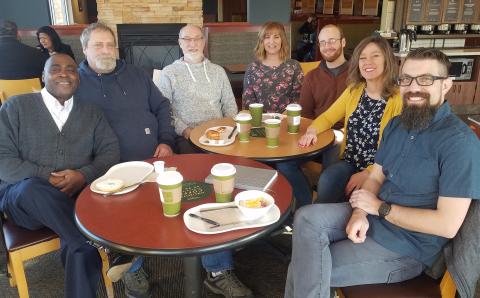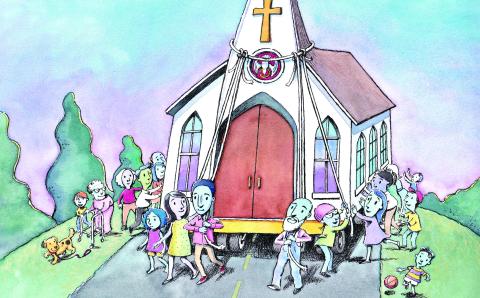The COVID-19 global pandemic has dramatically affected everybody’s lives. We at The Banner are praying for all, especially frontline health care workers, in this difficult time. The Banner has been affected by the pandemic as well. I wrote about this in a Behind The Banner blog post.
I would be lying if I said I am not worried or stressed by this pandemic and its social and economic consequences. But I am not panicking or hoarding because I trust in God. However, I also follow my local public health authority’s guidelines for physical distancing and other precautions. There is a line between trusting God and testing God to protect us. Jesus refused to recklessly endanger his life to prove God’s promise of protection (Matt. 4:5-7).
I am being careful not only for my own life, but for love of others, especially for my family. As Christians, our response to this pandemic should be driven not by fear but by love for our neighbors, especially those among us who are more vulnerable.
If we act out of love, we would not try to blame or scapegoat others for this pandemic. Racist acts toward Asian Americans have risen since March as many blame them for the virus. When asked by his disciples whose sin was to blame for a man born blind, Jesus refused to play the blame game but emphasized doing God’s work (John 9:1-7). This virus respects no ethnicities or boundaries. We must work in solidarity to combat this common threat.
Given the disruption to our normal practices because of physical distancing restrictions, this crisis might actually offer us opportunities to learn and grow.
The church might need to relearn what it means to be church rather than simply to do church. Is this time to shift away from our overreliance on the church building? Can we recapture the New Testament’s household church ethos? Do Christian parents need to redouble their efforts in forming their children’s faith at home rather than outsourcing it to church “experts”? Can Christian households reimagine themselves, rather than church buildings, as the focal points of God’s mission in their neighborhoods?
Technology, especially the internet and video, is a blessing to many of us at this time. But we must be cautious not to be overly reliant on technology, especially because not everyone has equal access to such technology.
In these uncertain times, individual Christians might need to relearn what it means to trust God instead of trusting our economic or social achievements. Physical distancing gives us an opportunity to examine ourselves to see if we love God more than we love going to church.
One lesson we can all learn from this pandemic is how much we lack control. This tiny virus has unmasked our delusions in this regard. We are losing control of our jobs, our social life, even our church. Our best laid plans are undone. Our normal control mechanisms are not working. And that is why we are afraid.
In the Bible, God often tells us not to be afraid because, even though we are not in control, God is. Jesus, who loves us so much that he died for us, is in control. And as he promised us: “And surely I am with you always, to the very end of the age” (Matt. 28:20).
About the Author
Shiao Chong is editor-in-chief of The Banner. He attends Fellowship Christian Reformed Church in Toronto, Ont.
Shiao Chong es el redactor jefe de The Banner. El asiste a Iglesia Comunidad Cristiana Reformada en Toronto, Ont.
시아오 총은 더 배너 (The Banner)의 편집장이다. 온타리오 주 토론토의 펠로우쉽 CRC에 출석한다.
You can follow him @shiaochong (Twitter) and @3dchristianity (Facebook).









